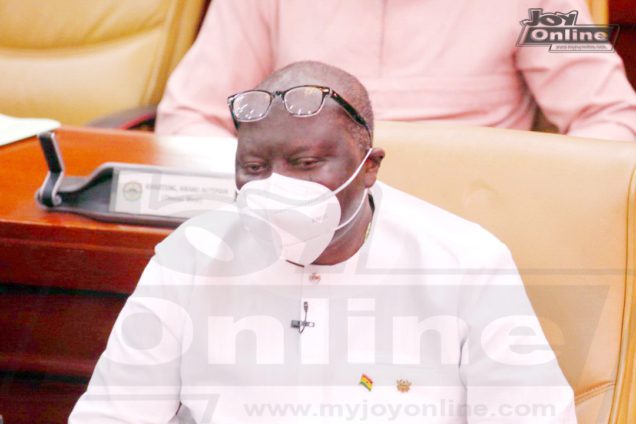Economist and Associate Professor at ISSER, Professor Robert Osei, says Ghana’s credit rating downgrade from a B to a B- with a negative outlook is Fitch’s way of signaling to the government that it is not comfortable at the pace at which the country’s debt is growing.
“Now if you have a situation where you’re actually spending 60+% of your expenditure just on compensation and then on debt repayment, essentially you have very limited fiscal space within which to operate and therefore it also could signal that you could compromise on your growth going forward,” he said.
“And if you compromise on your growth going forward, that hurts your revenue and then that comes back again to actually bite you in terms of your fiscal position which you started with,” he added.
Fitch in a report said their downgrade “comes in the context of uncertainty about the government’s ability to stabilise debt and against a backdrop of tightening global financing conditions.
“In our view, Ghana’s ability to deliver on planned fiscal consolidation efforts could be hindered by the heavier reliance on domestic debt issuance with higher interest costs, in the context of an already exceptionally high interest expenditure to revenue ratio.”
Speaking on JoyNews’ PM Express, Professor Osei stated that to bolster investors’ confidence in Ghana as an investment destination, it was laudable that the government was cutting its projected expenditure by 20%.
This he says will reduce the government’s projected expenditure for 2022 from around ₵135billion to close to ₵100 billion which will match the government’s revenue projections.
He was, however, skeptical about the ability of the government to meet their revenue projections considering the e-levy which has been pegged to be the driving force of the government’s revenue projection is facing serious opposition in Parliament.
“So again for the investor sitting out there they’re looking at all these different parameters and making a judgement because of course the ratings are not just quantitative, there are qualitative components of it as well, so they make a judgement as to whether given all the parameters that we know in respect of the economy whether we’re actually heading in the right direction or not.
“So the signal that we are giving in respect to cutting the expenditures is important because what you are signaling is that while we still intend to work on our revenue side of things we still believe that the gap between our revenues and our expenditures are high and therefore we need to work on that too to bring it down,” he said.
Latest Stories
-
George Twum-Barimah-Adu pledges inclusive cabinet with Minority and Majority leaders
39 mins -
Labourer jailed 5 years for inflicting cutlass wounds on businessman
40 mins -
Parliament urged to fast-track passage of Road Traffic Amendment Bill
41 mins -
Mr Daniel Kofi Asante aka Electrician
41 mins -
Minerals Commission, Solidaridad unveils forum to tackle child labour in mining sector
46 mins -
Election 2024: Engagement with security services productive – NDC
48 mins -
Retain NPP for the good of Ghana – Rebecca Akufo-Addo
48 mins -
‘Let’s work together to improve sanitation, promote health outcome’ – Sector Minister urges
49 mins -
Ellembelle MP cuts sod for six-unit classroom block at Nkroful Agric SHS
52 mins -
‘I’ll beat the hell out of you if you misbehave on December 7’ – Achiase Commanding Officer
54 mins -
AFPNC leads the charge on World Prematurity Day 2024
1 hour -
Court remands unemployed man over theft of ECG property
1 hour -
Election security rests solely with the police – Central Regional Police Command
1 hour -
NCCE engages political youth activists at Kumbungu on tolerance
1 hour -
‘In Mahama’s era students lacked chalk, but are now receiving tablets’ – Bawumia
1 hour

